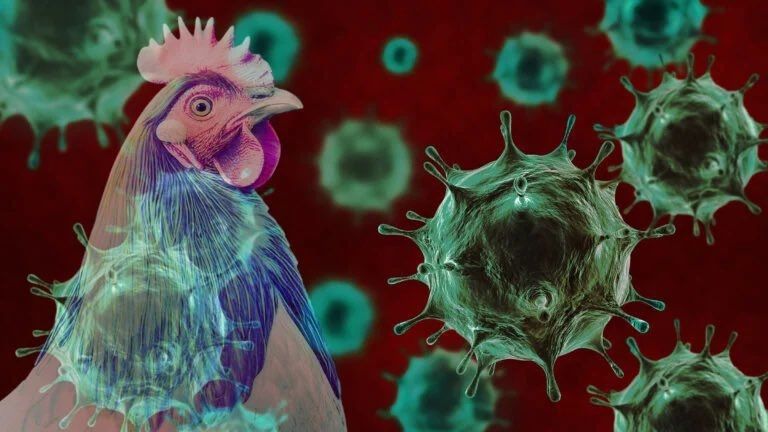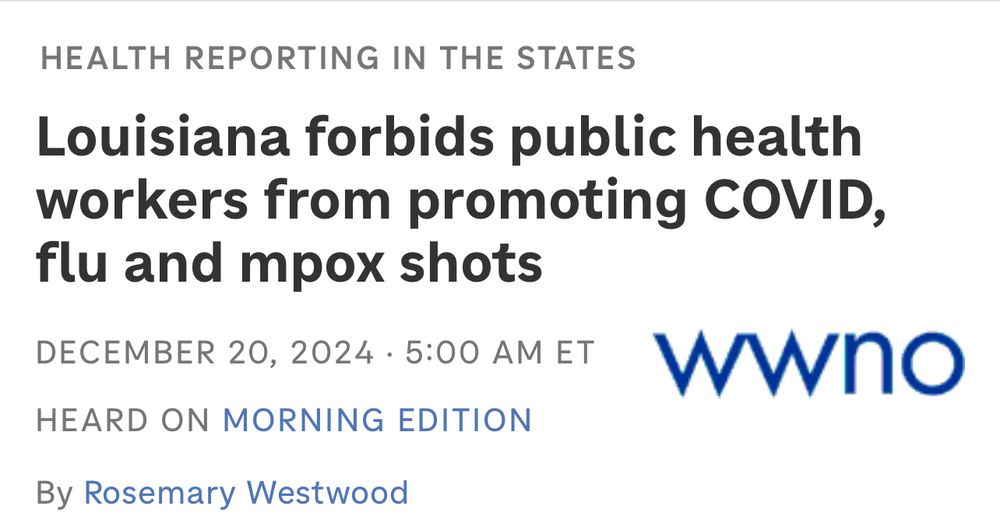The first Louisiana patient with bird flu has died, officials with the state health department said Monday. The death is the first U.S. H5N1-related human death, the agency said.

www.nola.com
Louisiana bird flu patient dies, becoming the first death from the disease in the US, officials say
Louisiana health authorities said a person has been hospitalized with H5N1, or bird flu. The person had recently been in contact with dead and sick birds, the state said.
STAFF PHOTO BY SOPHIA GERMER
A Louisiana patient hospitalized in December with the
bird flu has died, the first human death from the virus in the U.S., the state Department of Health said Monday.
"The patient was over the age of 65 and was reported to have underlying medical conditions," the agency said in a news release.
The patient contracted avian influenza after exposure to a non-commercial backyard flock of birds and wild birds, the news release said.
The health department said no additional cases of bird flu or any evidence of person-to-person transmission has been found in the patient's case.
"This patient remains the only human case of H5N1 in Louisiana," it said.
While the health risk for the general public of being infected with H5N1 remains low, "people who work with birds, poultry or cows, or have recreational exposure to them, are at higher risk."
"The Department expresses its deepest condolences to the patient's family and friends as they mourn the loss of their loved one," the state Department of Health said.
In December, federal health officials said
genetic sequences of the virus in the Louisiana patient showed signs of mutations that may make it better at infecting humans. It is the same mutation found in a British Columbia teenager, who spent weeks in the hospital after contracting the virus last year.
Scientists at the Centers for Disease Control and Prevention compared virus samples from the Louisiana patient to samples from infected birds on the person’s property. The mutations seen in the patient’s virus were not present in the birds, indicating that the virus likely mutated after the person became infected.
Bird flu is not usually able to easily attach to cells in the human respiratory tract, which is one of the reasons why scientists believe it does not spread easily from person to person.
At least 66 people in the United States have been confirmed to have H5N1 bird flu in 2024 and 2025. The outbreak, which began in dairy cows in late March, has primarily affected people who had contact with infected cows, accounting for about 60% of cases. Most of the remaining cases were linked to contact with infected poultry — either during the culling of infected birds at commercial farms or, in the Louisiana case, through contact with an infected backyard flock. In two cases, the source of infection remains unknown.
The version of the virus reported in the Louisiana and British Columbia patients and in birds is different than the one found in cows. People infected through cattle have typically had mild disease.
Staff writer Emily Woodruff contributed to this report. 








